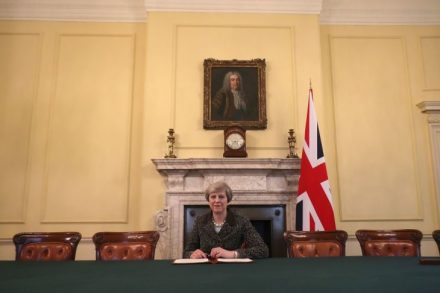What the papers say: Theresa May’s pitch-perfect start to Brexit
We’re off! The two year countdown until Brexit has begun. Theresa May’s triggering of Article 50 has been met with unanimous praise in the press, with the newspaper editorials saying the PM hit all the right notes in her letter. But there was controversy too. Some are saying the inclusion of a message suggesting Britain’s co-operation on security matters is at stake is an unhelpful threat to Brussels. Here’s what the papers are saying about a historic day for Britain: Theresa May’s Article 50 letter was ‘pitch-perfect’, says the Sun, which argues that the Prime Minister succeeded in balancing generosity with a ‘flash of steel’. The onus now, the paper




















